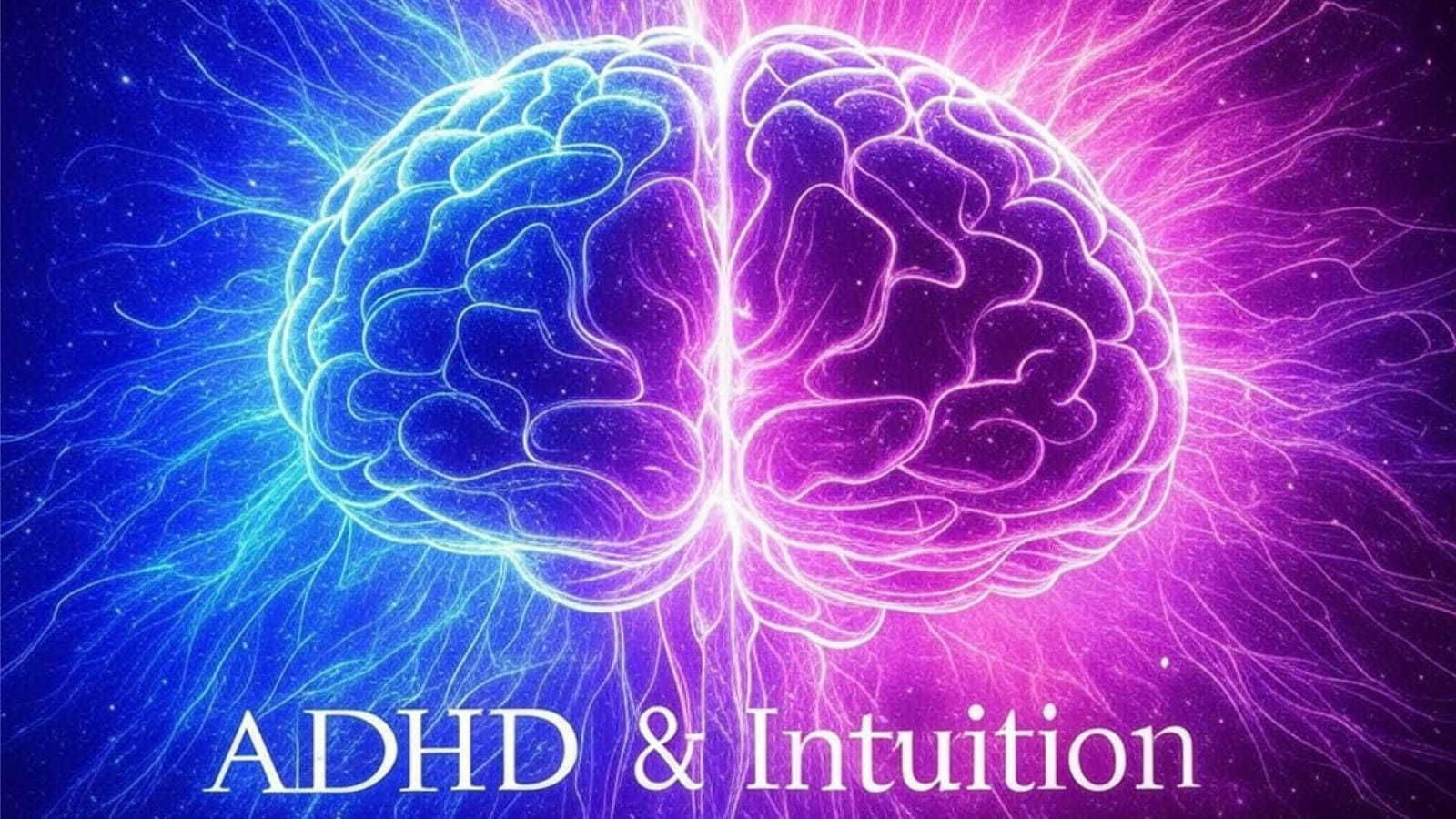Hidden thoughts
For many people their intuition is often accurate, insightful, intelligent and sometimes quite surprising. They realise that they know something, feel a particular way or have a particular view without being aware of ever having previously thought about it. But it seems that the non-conscious, un-conscious or subconscious (as I will refer to it from now on) brain has given the matter a great deal of thought.
"You process vast amounts of information. You effortlessly delegate most of your thinking and decision-making to the masses of cognitive workers busily at work in your minds basement. Only the really important mental tasks reach the executive desk, where your conscious mind works. When you ask, “what are you thinking?” your mental CEO answers, speaking of worries, hopes, plans and questions, mindless of all the lower floor laborers." from Intuition by David G. Myers
Divine force or clever brain
Some people believe that intuition is a spiritual gift, something out of the ordinary something that connects them to the divine. They say that intuition could not possibly be derived from what they already know, feel, smell, see or hear. That’s not how neuro-science sees it, but it’s still awesome. Our brains are amazingly sophisticated, complex and quite incredible – intuition is just a facet of our brains normal functioning. Intuition is mental, complex parallel processing based on sensory inputs, memories, stored concepts and ideas in order to make short-cuts, estimations, deductions and connections.
Part of the confusion comes from believing that the conscious mind is “all there is” to the mind. In fact nearly all our brain power is devoted to subconscious processing. We do not consciously balance on a beam, recognise faces, drive cars or even speak out loud. It is a mistake to see the conscious as the only controlling force of our mind.
Our subconscious is more in charge than we think
From experiments with brain scans, we know that parts of the brain responsible for action become active before the conscious part of the brain even registers the action. The subconscious brain has completed the action even before the conscious mind comes to arrogantly conclude that it was really its decision all along! Really all the conscious has done is observe what took place.
There is a great deal of experimental evidence to confirm the fact that mental processing takes place in parallel, subconsciously throughout the brain. Many people can recall a time when they were driving a car and found themselves at the destination with being conscious of driving there.
There are extraordinary cases of people with brain injuries who cannot consciously see an object and yet can do so subconsciously. When asked if they can see a stick they say no, but when asked whether the stick is held horizontally or vertically they “guess” correctly all the time.
There are extraordinary cases of people with brain injuries who cannot consciously see an object and yet can do so subconsciously. When asked if they can see a stick they say no, but when asked whether the stick is held horizontally or vertically they “guess” correctly all the time.
How is intuition relevant to ADHD?
It seems that many people with ADHD believe themselves to be intuitive. Authors who write about ADHD positive traits often list intuition amongst them. Could people with ADHD experience more intuition than others? I think the answer is yes since we rely more on the non-verbal workings of the inter-connected right brain.
Right-brain bias
Here’s my neurological explanation for an ADHD right-brain bias. Our left-brain functions are weakened by poor dopamine connectivity, the more tightly integrated right-brain nor-adrenaline/nor-epinephrine connected functions become dominant. The right brain is home to emotions, pattern-recognition, intuition, creativity, and loves connections; the left brain is linear and works on rules, facts and figures. The ADHD mind strives to make connections between multiple fundamental concepts.
When a new ideas or fact is considered the ADHD mind fits it to the previously collated and connected library of information already stored in memory. This connected-library continues to grow and develop with age and may help explain why children with ADHD are initially slower to learn than average children. It’s harder to assimilate than to memorise. If the information does not fit or is not congruent with the “big-picture” then our minds struggles to accept it. Each new piece of information must be connected to all other related information.
More data, more connected
I took part in some attention research at UCL a couple of years ago, frustratingly not yet published(!), that significantly showed ADHD adults could process more external information than average during a reflex performance test. Often we notice more broadly than others, a consequence of struggles to focus narrowly as others do. Multiple connections in a big-picture mind explains why ADHD scientists have breakthrough insights and invent, and explains how ADHD comics make absurd humorous observations and connections.
My quiet mind
In my case my ADHD brain is very quiet, I have very few interruptions. No thoughts about the future (plans, events), the past (memories) or anything else for that matter impinges on my consciousness. So to stave off boredom, I am always reading, watching or talking! If I sit quietly I will contemplate one thing, I am not bombarded by a hundred items (seldom nothing!) seeking my conscious consideration. Without distractions, it is as if I am always in a quiet meditative state, but I am not dull, the thinking is taking place but I just don’t “see” it.
My brain is far from inactive however, it is simply that my conscious mind is less in-touch with my subconscious processing. When I talk though an idea, or write about a topic, I only then realise that I have indeed processed a lot of information and reached conclusions without ever having previously given the subject a single moment of conscious thought. I have not mulled over the idea – I have not deliberated, cogitated, or contemplated it before. I (my conscious) did not realise that I (my subconscious) felt or thought that way until that precise instant when I spoke out loud or wrote it down.
My subconscious mind may have been deliberating these ideas for quite some time perhaps together with input from my senses, memories, plans, other connected concepts and thoughts, to understand the big-picture and grapple with the core essence of the idea. When the thought is finally dragged into the “spotlight of my conscious mind”, through talking it out loud, the idea emerges complete, well-considered and is sometimes quite surprising to my conscious.
Clever subconscious
This same subconscious process operates when the phone rings and we intuitively know who is calling, our subconscious hears the ring well before our conscious does, the subconscious connects all the available information together, who calls you most often, at what times, who might have a reason to be calling now and the subconscious makes an intelligent deduction then as to who is calling. It is not divine prompting but rather our amazing subconscious brain making a very clever guess.
When we intuitively “read” another person’s emotions or thoughts, this too comes from our subconscious at work. It rapidly processes body-language, intonation and language clues, it accesses memories of the person and other peoples past reactions and situation; and it then connects all the clues, rules and memories to deduce their mood. Our conscious believes it knows how the person feels “without even thinking about it”, but the reality is that our subconscious has been working rapidly in parallel on piecing it all together.
Don’t over-estimate your conscious
I think intuition is fantastic, not guaranteed to be right but often the result of a great deal of deep thinking. It is more that our conscious is overrated (or so says my dumb conscious mind?!). The conscious isn’t really in charge of much and this lack of real power in our conscious mind is why denial and rationalisation have such significant places in our lives.
When the subconscious decides upon an action that is counter to our conscious wishes, we are left in the uncomfortable position of not feeling in control of ourselves.
The conscious then rationalises and justifies this alternate choice, in hindsight – “I need the glass of wine, I’m stressed”, “Nearly finished, just ten more minutes” or “maybe I’ll just watch TV for an hour”. The more we can help the conscious seeing itself, as little more than a spotlight trained on one part of our thinking, the easier it is to understand and accept the contradictions in people and ourselves.
Try to help your conscious accept that its limited control of decision making, it simply observes the result of decisions made by the subconscious thought and then justifies why the decision in hindsight. Have your arrogant conscious get of its high horse and resign itself to the fact that it is really is not that influential. And of course if you are ADHD then it may have even less influence, since we struggle more to assert control of our unconscious instincts.
If you’re ADHD then accept that your conscious mind has a tougher struggle to deny your subconscious’ wishes but embrace the fact that you have great intuition…

